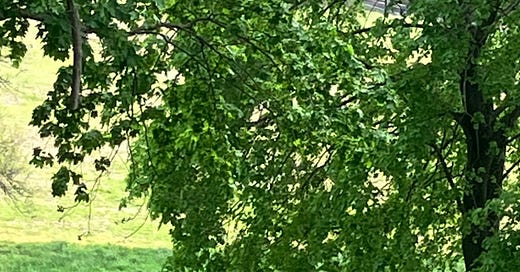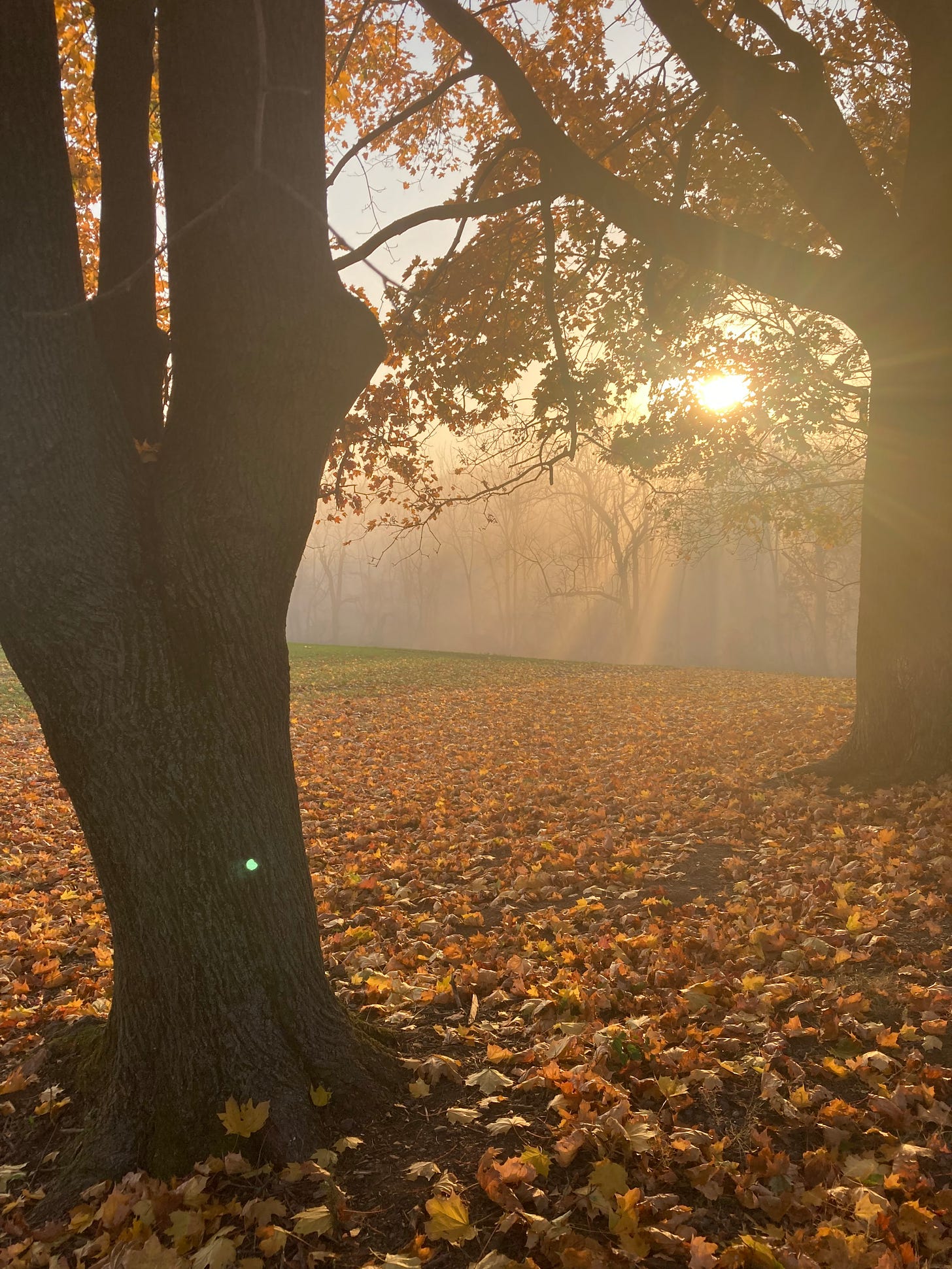Last Saturday, my kids were all playing outside on the most beautiful of days—you could smell the lilacs blooming, the trees hung over the backyard all budding, dandelions grown tall and puffy, trembled on hollow stems.
My teenage daughter put up a tarp for a tent, my teenage son attached his hammock between the trees, and our 10 and 7 year old took turns guiding our chickens around the yard with walking sticks.
All that is to say that everything was perfect. So, I got it into my head that I would sit out on our porch and read poetry. Now, lest you think I do this often, I cannot recall the last time, and after only a few seconds of sitting there, I remembered why: my kids do not let me.
I have sometimes envied my husband who can sit in the midst of a chaotic family afternoon and read a book. I cannot and I have stopped trying. Because invariably, my four children, one by one, end up beside me, in my face, or even on top of me (if my seven year old can find any real estate on my lap, legs, head, or shoulders), talking, tattling, laughing, fighting, singing.
And last Saturday, the mere presence of Mom on the porch meant that they began to circle me, edging closer and closer until I had to put my book down and admit defeat.
Dear reader, I have to admit that I was annoyed and as soon as they sat down at the table, I gave them a rule.
I am reading poetry, I said. If you talk to me, you have to listen to a poem first.
Now, using poetry as a deterrent is probably not the wisest for a writer who wants her kids to grow up loving literature. But then the strangest thing happened. They listened. We talked about a poet’s use of words and what they could mean and about how beautiful is a poet’s eye: to show us the world through a different lens.
And then *gasp* they wanted to write their own poems.
With my mouth agape (it really wasn’t agape but you get the picture), I watched them spread to the four corners of the yard with paper and pen.
When they returned, we read our poems to each other, snapped our encouragement, and admired one another’s metaphors. I told them that, one day, they could each grow up to be poets.
Yesterday afternoon, as I was leaving the library to head to my daughter’s track meet, a book caught my eye.
While I sat in the bleachers waiting for my daughter’s event, I began to read Dear Writer: Pep Talks and Practical Advice for the Creative Life by Maggie Smith. The book is a pleasant and highly readable set of reflections, poems, prompts, and gentle advice for those longing to create.
Smith shares about a poetry workshop she did for kids at an elementary school. After a few days talking about the elements of poetry, she was amazed by the images, metaphors and observations they came up with.
This took me back to the time I taught a poetry workshop and one of the children—a boy who, according to his teachers, struggled a lot in school—wrote a poem so beautiful that he won an award for it.
Smith told her kids: “there’s no such thing as poet’s eyes. Every child is born with poet’s eyes…People don’t become poets,” Smith explained to them. “They either, as they grow up, become not-poets, or they stay poets.”
What I had told my own kids on that beautiful Saturday was wrong. They weren’t going to become poets; they already are. All it takes to stay a poet is to keep your eyes open to the world: to the beauty and the horrors, to the mysterious and the mundane.
This morning I intended to meditate on Psalm 139 but I got stuck on the first line:
“Oh, Lord, you have searched me and you know me.”
As the phrase repeated in my head, I began to see myself from the inside and out, an outline being filled in. A presence swirled around inside of me, penetrating my thoughts, not like a judging, all-seeing eye, but a with a harmony made physical in swathes of color, light, and wind.
And the thought came to me:
God is a poet.
Of course, God is a poet, imagining and creating us, savoring us, knowing and searching us and then laying us out onto the canvas of creation with God’s own breath inside of us.
Can there be any act of creation more terrible and beautiful than that?
Other things:
Besides Smith’s Dear Writer, I’ve been slogging through Jonathan Strange and Mr. Norrell by Susanna Clark. I started this book several years ago and never finished it. But so many people love the book that I thought I’d give it another go. Although beautifully written, it is still pretty slow, honestly, but I’m determined to make it through the 1000 or so pages this time. Fingers crossed.
I’ve not always been one to call my government representatives but in the current political climate, it feels like a small thing I can do. I use the app 5calls or you can visit 5calls.org. They make it so easy to call your senators or members of congress about the issues you care about like ending the war and humanitarian crisis in Gaza, the unlawful detainment of immigrants and legal residents, the cuts to PBS and NPR, etc.
I’m excited to see that my friend Christina Hubbard, a poet and artist, is about to release her new photopoetry book Water in Her Tender Leaves.
Just for laughs:
Creepy child stares
Another Lord of the Rings meme
Even Jesus forgets sometimes






Paraphrasing Meister Eckhart : How we see is how we love. The eye with which I see God is the same eye with which God sees me. My eye and God's eye are one seeing.
I cannot think of a time when I sent a message to someone I don’t know, but your recent post means so much to me to me I have to tell you so and why. I’m 74 years old and want to do more about changing the state of our country. My age and illnesses prevent a lot, I can still love my neighbors in word and deed. But I have felt I need to do more! And then, almost as an afterthought, you introduced 5 Calls. I have down loaded the app and have begun my calls! Thank you for all you do!